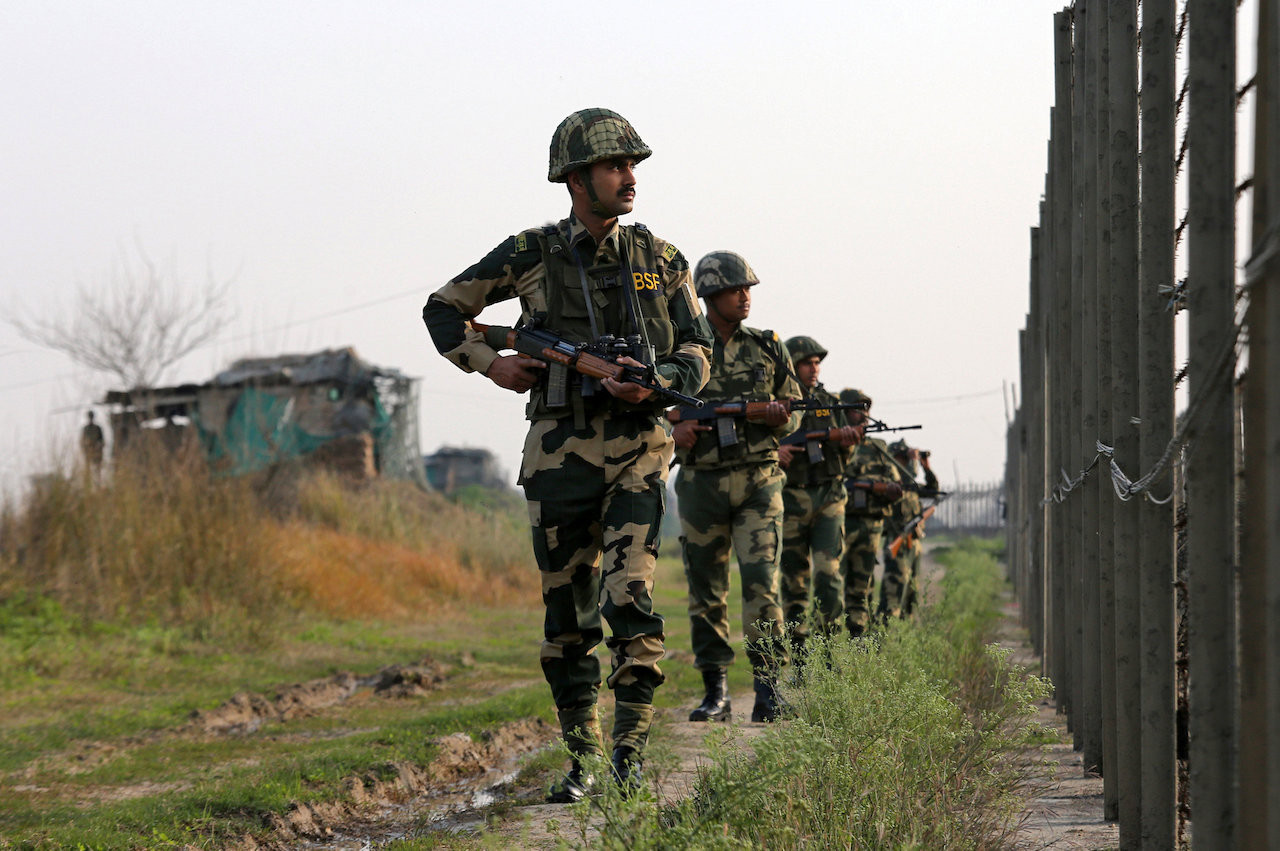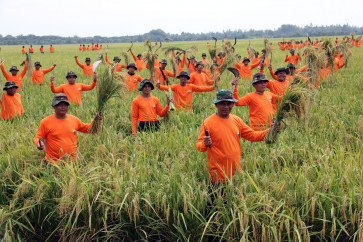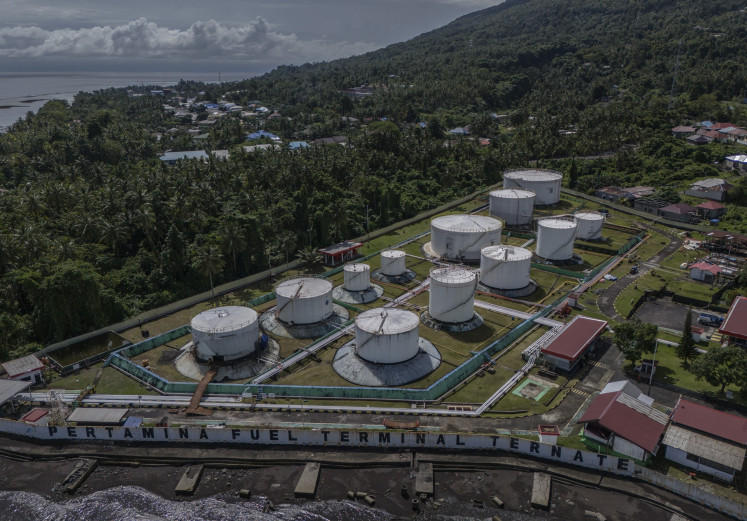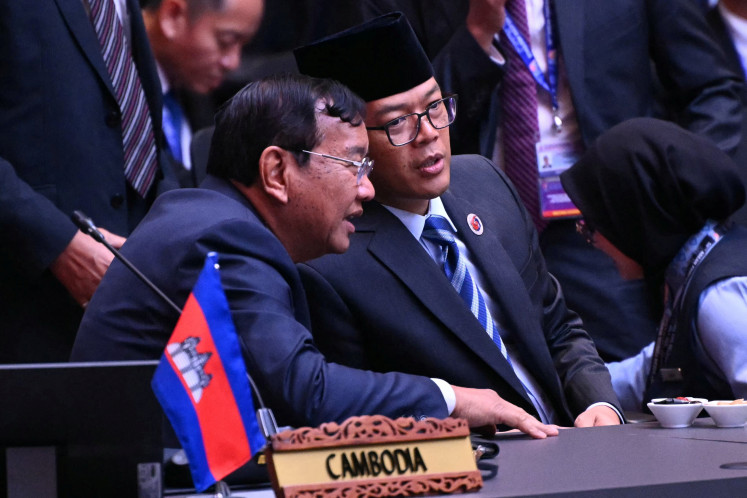Popular Reads
Top Results
Can't find what you're looking for?
View all search resultsPopular Reads
Top Results
Can't find what you're looking for?
View all search resultsA year on, Pakistan calls for Indonesian solidarity on Kashmir
Pakistan has accused India of various human rights violations in Jammu and Kashmir since the latter revoked the state's special status in August 2019.
Change text size
Gift Premium Articles
to Anyone
T
he Pakistan mission in Indonesia has called on the government to support the South Asian country in its stance in the conflict over Jammu and Kashmir with India.
On Aug. 5 last year, India revoked the special status of Jammu and Kashmir that had permitted a degree of autonomy to the state. India also turned the single state into two union territories (UTs) in a development that followed decades of complicated relations following the partition of British India into India and Pakistan in 1947, when the colony won its independence from the United Kingdom.
“Jammu and Kashmir remains an internationally recognized dispute and the longest dispute ever at the United Nations with almost a dozen UNSC [United Nations Security Councils] resolutions seeking a plebiscite to determine of the wishes of the Kashmiris for a final settlement,” Pakistan charge d'affaires in Jakarta Sajjad Haider Khan said in a statement on Wednesday.
Khan pointed to India's decision to revoke the state’s special status as a violation of both international law and United Nations Security Council (UNSC) resolutions.
He also stressed that articles 370 and 35A of the Indian constitution permitted Jammu and Kashmir its own constitution and special autonomy status.
During the 1947 partition, Muslim-majority Kashmir was expected to become part of Pakistan, but the territory’s then-Hindu ruler, Hari Singh, sought to be independent.
Following an invasion of Muslim tribesmen from Pakistan, Singh hastily acceded to India in return for its help against the invaders. The decision led to war and years of tension between India and Pakistan, even after the UN-sponsored ceasefire in 1949.
Read also: A-year-of-upheaval-in-Kashmir-under-direct-rule-from-Delhi
Since India's unilateral action over the disputed territory last year, Pakistan has accused the country of human rights violations in the “most militarized zone” in the world, and the two nuclear powers have continued to trade barbs on various international forums.
India has imposed a communication blackout on Jammu and Kashmir, restricting information access to and from the territory. India has reportedly arrested journalists for reporting from the area.
When asked about Indian policy on the territory, Indian Ambassador to Indonesia Pradeep Kumar Rawat said that Delhi had taken a series of policies to develop the state, including those that guaranteed basic rights, strengthened grassroots democracy and boosted economic self-reliance.
He added that the Indian government had also provided 50 new educational institutions and a variety of scholarship schemes.
"Decades of cross-border terrorism and gaps in governance which resulted in resentment needs fresh air of peace and development," the ambassador said in a written statement obtained by The Jakarta Post.
Rawat went on to defend the abrogation of Article 370, calling it a vision “for development, enhanced governance, and socioeconomic justice for disadvantaged sections of the population”.
On Wednesday, Indonesian Foreign Minister Retno L.P. Marsudi spoke with her Pakistani counterpart Shah Mehmoud Qureshi by phone to exchange Idul Adha greetings. The two foreign ministers also discussed the developments in Jammu and Kashmir.
At a press briefing on Friday, Retno said that Indonesia, in its capacity as the UNSC president in August 2020, had acknowledged Pakistan's request to raise the Jammu and Kashmir issue at the council.
The minister reiterated, however, that Indonesia would maintain impartiality over the issue, because "India and Pakistan are both friends of Indonesia".
"I also convey that both sides have to work to control the COVID-19 outbreak in Jammu and Kashmir, as well as put forward dialogue and negotiation for conflict resolution [that] gives special attention and priority to the people's safety, regardless of their background," Retno said.
Indonesia has largely maintained a neutral stance on the issue, given its good ties with both nations. At the height of the tensions in 2019, Retno called on the two countries to employ dialogue and consultation to bridge their differences.
–Dian Septiari contributed to this story.
Editor's note: The statement from Foreign Minister Retno L.P. Marsudi has been updated in this article.










